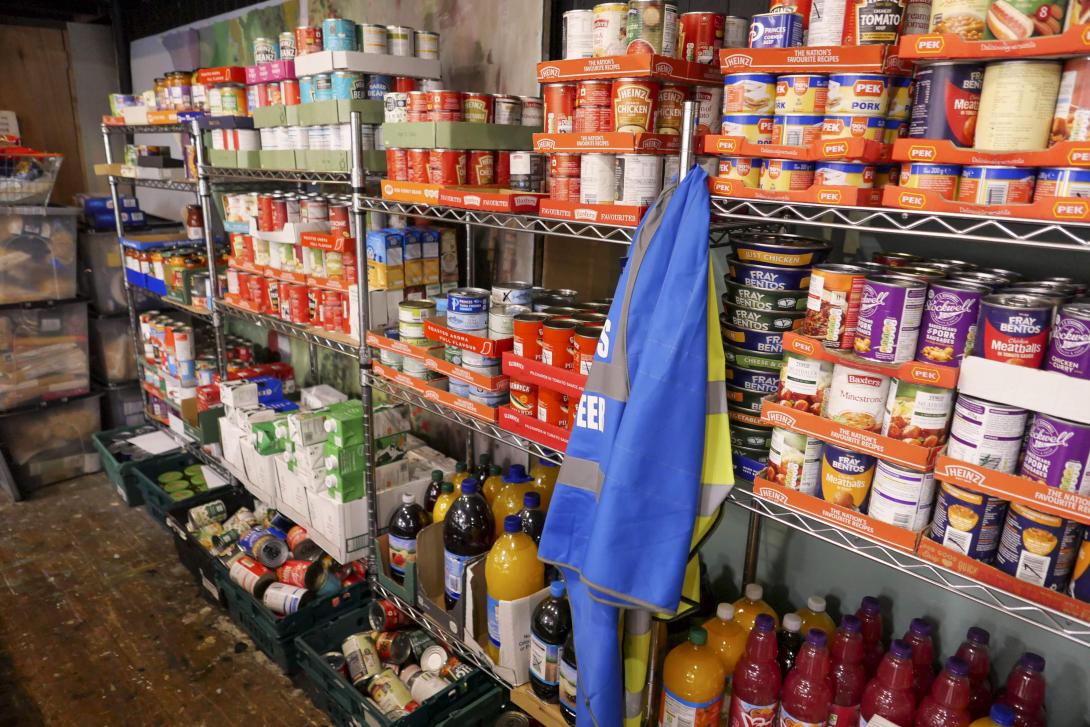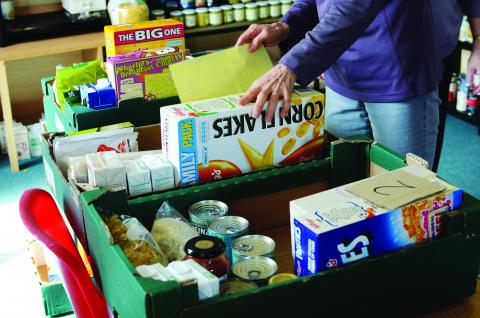16 December 2021
Assessment of household food insecurity included in new Government report

by Isabel Hughes and Shona Goudie
Today, Defra have published their first UK Food Security Report, which following advocacy from The Food Foundation includes a robust assessment of household food insecurity.
The publication of this report is required by the Agriculture Act 2020. When the Act was passing through Parliament, The Food Foundation argued that it was essential that the report included data on household food insecurity. In our view, any assessment of national food security is incomplete and potentially misleading if it does not include this metric – knowing that there is sufficient global food availability, that supply chains are resilient, or that there is an appropriate balance of imported vs home-produced food does not ensure that individual households are accessing sufficient food.
We worked with MPs and Peers to table amendments to make consideration of household food insecurity part of the legal requirements for the report on the face of the bill. At the time, the UK government had already begun measuring household food insecurity as part of the Family Resources Survey – something that The Food Foundation had also campaigned on, with others, for several years. We suggested that this data could be used by the Government for the purposes of this new report. The Government rebuffed these amendments, but made some assurances in the House of Lords that household food insecurity would be covered in the assessment:
“The Government will already consider household food security among the themes covered in the report. This is covered by Clause 17(2)(d), as household food security comes under “household expenditure on food.”
Lord Gardiner of Kimble, Hansard
We remained concerned that the report would be inadequate in this area. The measurement of expenditure on food is severely limited as an indicator of household food insecurity as it does not capture the experience of very low levels of absolute expenditure on food and the impact of that on diet quality and overall dietary patterns.
We are therefore delighted to see that the Government has chosen to report on household food insecurity in their food security assessment today. Including this data is essential in supporting Parliament’s understanding of the issue and their ability to provide adequate scrutiny of Government policies that are intended to protect households from food insecurity.
The data clearly illustrates the scale of the problem of food insecurity in the UK and that urgent action is required. The report cites data from the Family Resources Survey that found that pre-pandemic 8% of households were food insecure, but it acknowledges that this measurement is limited as it only covers a 30 day reference period. It highlights that there are significant inequalities by region, ethnicity and disability but fails to acknowledge that people on benefits are also disproportionately affected - a worryingly high 43% of people claiming Universal Credit are food insecure.
The Food Foundation have also demonstrated the severity of the issue in our tracking of food insecurity levels over the course of the pandemic.
It is imperative that Government now act on the data they are reporting to develop comprehensive policies that ensure everyone in the UK has access to sufficient, healthy food. The Government will be required by law to refresh their analysis at least once every three years. Parliament must utilise the opportunity that publication of today’s assessment presents to scrutinise the Government’s work in this area to ensure that levels of household food insecurity improve significantly in the next 3 years. As a first step, the Work and Pensions Committee should consider launching an inquiry into what the Government is planning to do to reduce the levels of household food insecurity amongst benefits claimants.
Baroness Rosie Boycott is a Trustee of The Food Foundation and tabled amendments on this issue in the House of Lords during the passage of the Agriculture Bill. Today she said:
“It is brilliant to see the UK Government recognising the importance of comprehensively tracking food insecurity levels and reporting on this issue to Parliament. It is shocking that there are so many households in the UK in 2021 struggling to afford enough good healthy food. This new report will be a strong tool for leverage, allowing Parliament to hold Government to account for progress in reducing household food insecurity levels.”

Isabel joined The Food Foundation as Policy Engagement Manager in April 2020 from the Department for Business, Energy and Industrial Strategy, where she worked on domestic and EU policy development. For the past 6 years she has worked in a variety of roles across Government, spanning EU policy implementation at the Department for Environment, Food and Rural Affairs, auditing the value for money of Cabinet Office programmes, and coordination of Defra’s no deal planning at the Department for Exiting the EU. She has also previously project managed large-scale digital campaigns at AgeUK.
Isabel is interested in the links between different parts of the food system, and the possibilities for really ambitious, joined-up policy thinking to address poor environmental, social, health and economic outcomes. Over the past 2 years she has completed a part-time MSc in Food Policy from City University, using her final thesis to analyse and critique the influencing strategies adopted by NGOs working on palm oil consumption in India. She is a professionally trained cook, and has recently discovered the joys of growing her own fruit and veg!

Shona joined The Food Foundation as a Project Officer in 2019 and has worked on research, policy and advocacy across a range of projects over that time including leading our food insecurity surveys and flagship annual Broken Plate reports. She now works across the charity's policy portfolio including our children's food campaigns, food insecurity and food environments. She is a Registered Associate Nutritionist with a background in clinical nutrition who worked in dietetic departments in NHS hospitals before joining The Food Foundation.



